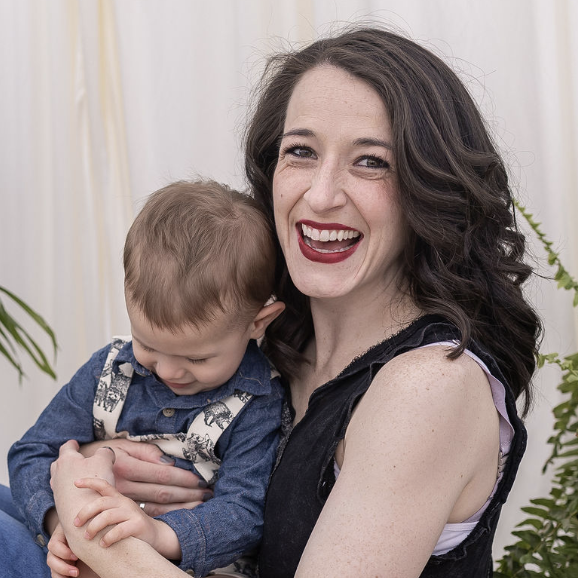Respectfully, No: 3 Christ-Centered Ways to Say No Without Guilt as a Mom
Parenting


Audio By Carbonatix
4:00 AM on Thursday, October 30
By Peyton Garland, Parenting
The other day, my husband brought home a shirt for me with a rather frazzled raccoon on the front. Its furry hand is raised before its face, and the graphics read, “Respectfully, no.” Of course, the shirt is a lighthearted joke, but the idea remains true: we must learn when to respectfully decline. Forever saying yes, committing to everything, is an impossible standard that leaves many of us exhausted, frazzled, like my raccoon, and even bitter. Whether we are afraid of hurting people’s feelings by declining their request for help, or we feel it’s our duty to do it all, it’s important to consider our finite body and limited capacity. Recognizing our limitations is not only necessary but a daily act of humility, placing our schedules and abilities in God’s hands and allowing Him to direct our paths.
As Christian moms, this act of humility is tough, not because we want to live prideful lives, but because we feel an extra layer of guilt when we say no to something the church is asking of us or something our children want. We wonder if it’s a sin to decline the opportunity to volunteer at a church festival, or if we are awful mamas when we say that we can’t serve on our child’s booster club this year. Mom guilt is heavy, but committing to everyone and everything is heavy, too. If we can’t learn to say no, our mental, spiritual, emotional, and even physical health suffers, and in the aftermath, our children suffer, too.
If you have a hard time saying no, I’ve created a simple guide with three key steps to recognize and then consider before committing to your next big (or small) thing:
1. Recognize the Purpose
When you’re asked to sign up for a task or commit to a long-term project, it’s essential to recognize the event's purpose, position, etc. Is it a commitment with a purpose you believe in that aligns with your faith and reaps positive, healthy benefits for your family?
Too often, those who struggle with saying no are pegged for tasks simply because the other person believes we won’t object. This can easily place us in situations where we feel pressured to say yes to something that might compromise our personal values. I’ve discovered that if I’m asked to edit a project for someone, I must first ask for a writing sample and synopsis. Too easily, I can be asked to edit content that promotes an unbiblical message, and even though I’m simply spotting grammar errors or tweaking sentence flow, I don’t want to take part, in any capacity, in a project that goes against my personal convictions.
At home, saying no is a bit intense because I’m dealing with a toddler. When he hears no, it typically follows an emotional meltdown. This is an easy incentive to say yes and give in to each request he makes, but this means the purpose behind my yes is thoughtless compromise. It’s the easy way out (in the short run). However, by never saying no, I’m not teaching him boundaries or how to process his feelings healthily when he is disappointed, sad, or angry. With children, I’ve discovered how pivotal it can be to offer choices after a no. If my little one asks me to read the same board book for the tenth time–and I recognize that I don’t have the mental capacity for the repetition–I’ve created a pattern of saying, “No, Mama can’t read that again. It’s not good for her brain. But, you can either pick another book to read, or we can sit here and rock for a while.”
When deciding whether to say no, recognize the purpose behind the project, commitment, or surrender to your child’s wishes. If the purpose glorifies God and cultivates healthy service, it’s a yes worth considering. Otherwise, it’s time to respectfully say no.
2. Recognize Your Capacity
Even if you are presented with an opportunity to commit to something extraordinary, whether at church, your child’s school, or a non-profit in your community, you can’t neglect to consider your capacity before signing up You are a limited human with a limited supply of energy, finances, and hands. Before saying yes to anything, it’s essential to consider your schedule. Will you be at the ball field most evenings for the next several months? Do you host a weekly Bible study that leaves Thursdays unanswered? Does your family take a Sabbath each Sunday afternoon by resting at home and putting away electronics?
Only you know your schedule best, and if a particular task consistently interferes with prior commitments or family time, perhaps it’s not the best use of your yes.
But let’s say you do have the capacity. Your schedule is open, or at least flexible, and time wouldn’t be an issue, but you are recovering from a season of burnout, or a financial crisis has your family on a tight budget. These are other reasons to recognize your capacity. Time isn’t the only constraint when choosing to volunteer for something. If you don’t have the head and heart space for something, or you don’t have the monetary resources it would require, it’s best not to push yourself. If you strongly believe in this project, event, etc., you want those with the best energy and abilities to contribute so things go as well as possible.
It’s a hard pill to swallow at times, but, on occasion, you best serve something you care deeply about by recognizing your lack of capacity and saying no.
Even if you support a project’s purpose, it’s crucial to recognize your capacity. Allow this gentle reality check to guide your decision-making process healthily.
3. Recognize Your Why
Once you recognize your enthusiasm for a project and your open schedule, you must realize why you would say yes. This takes a bit of soul searching and digging deep into your heart to dissect your motivations. I’ll be frank, in college, I often committed to volunteering with the youth group, playing the piano, performing for church events, etc., because it’s what a “good Christian” girl should do. It was a confidence booster, a near-ego trip for me, and that is certainly not a reason to participate in anything, even something good. My motivation was self-elevating, which means it wasn’t about those I was serving with or those I was serving.
Perhaps your why might not be as self-centered as mine, but you might commit to restoring good graces with someone who lost respect for you or commit to something just to prove somebody wrong. In the end, you’re hoping to gain that same sense of confidence that I was, but, like me, you’re going about it in all the wrong ways. The why behind anything we do as Christian moms should be centered on serving others, spreading Christ’s joy, and discovering the beauty of collaborating with healthy, like-minded people. Commitment is often about both service and growth. If you say yes for the sole purpose of satisfying yourself or resolving a personal issue, you leave little room to serve others well and spiritually grow. It’s crucial to remember that a heart of service and commitment looks outward, not inward.
Before saying yes to a project, recognize your motivations. If your heart isn’t centered on service and growth, it’s best to stick with no.
Mama, in today’s busy culture, it’s all too easy to feel as though you must commit to everything, all the time. You feel excess pressure, as if your worth as a believer and mother rests in your ability to do everything. But remember, saying no can be just as useful, just as committed, in a sense, when you recognize that you don’t believe in the purpose, have the time, or want to show up for the right reasons. And, always, it’s crucial to recognize that your children are watching how you make decisions and decide whether to say no. Set a healthy, holy example.
Photo Credit: ©Getty Images/ljubaphoto
 Peyton Garland is an author, editor, and boy mama who lives in the beautiful foothills of East Tennessee. Subscribe to her blog Uncured+Okay for more encouragement.
Peyton Garland is an author, editor, and boy mama who lives in the beautiful foothills of East Tennessee. Subscribe to her blog Uncured+Okay for more encouragement.

























